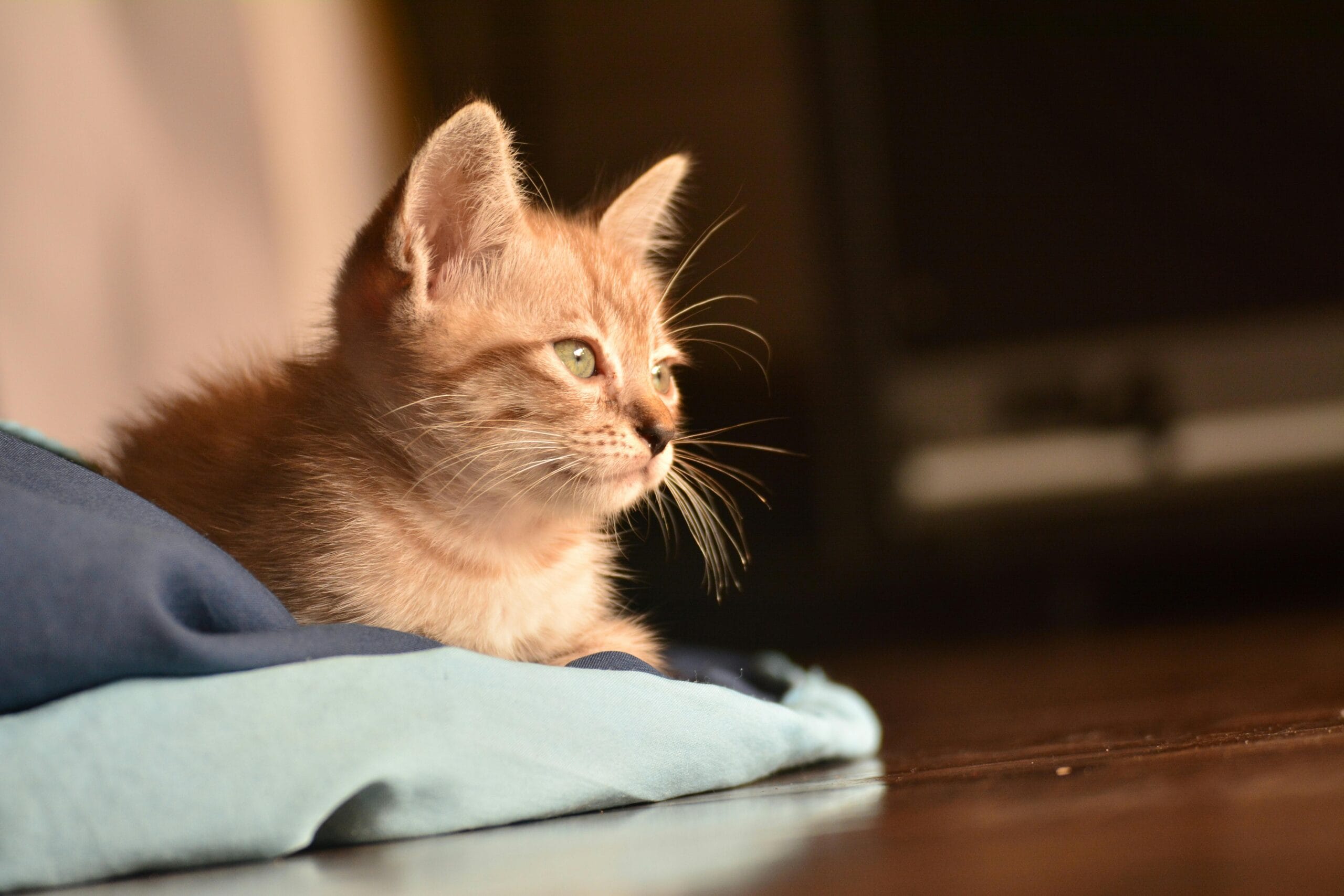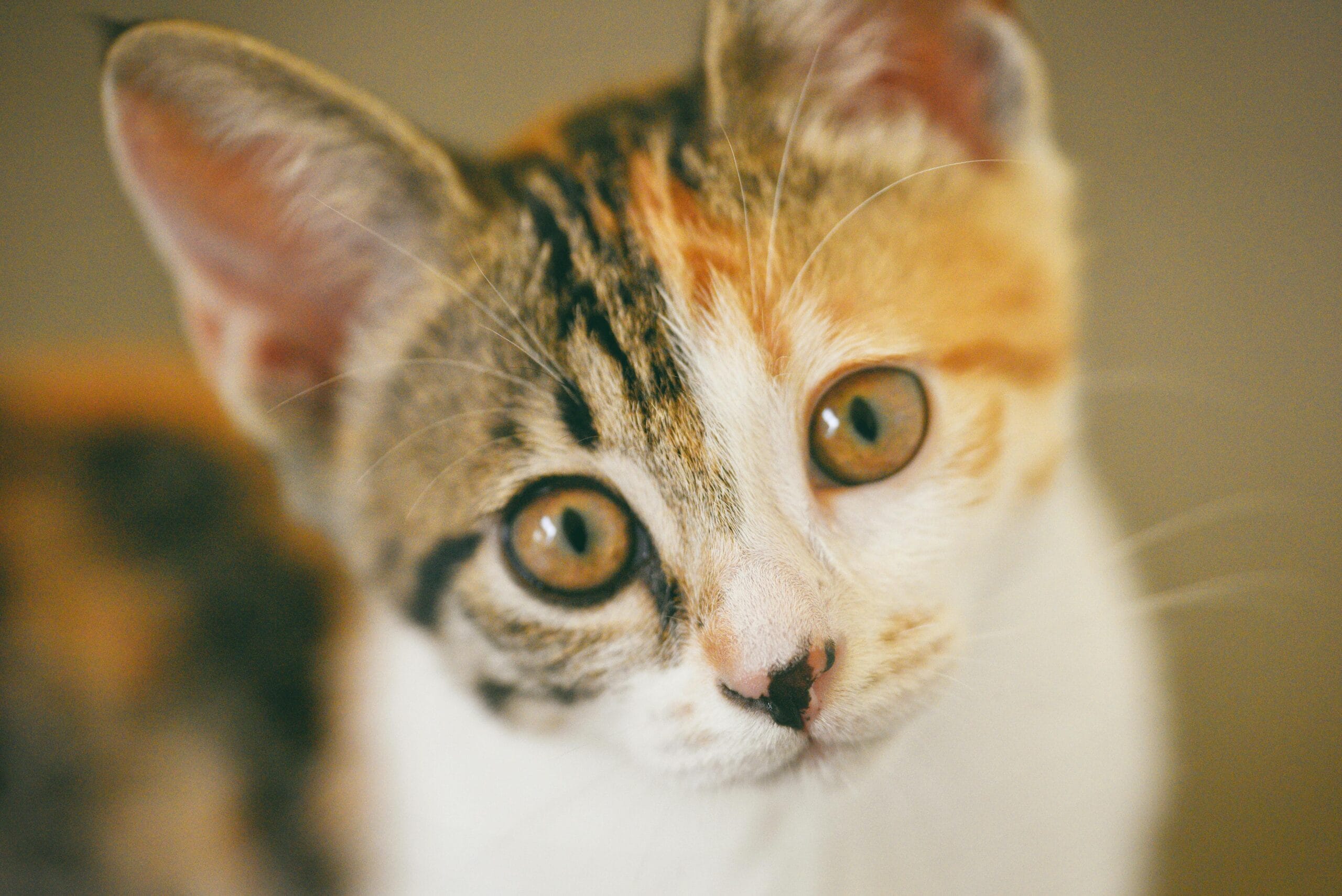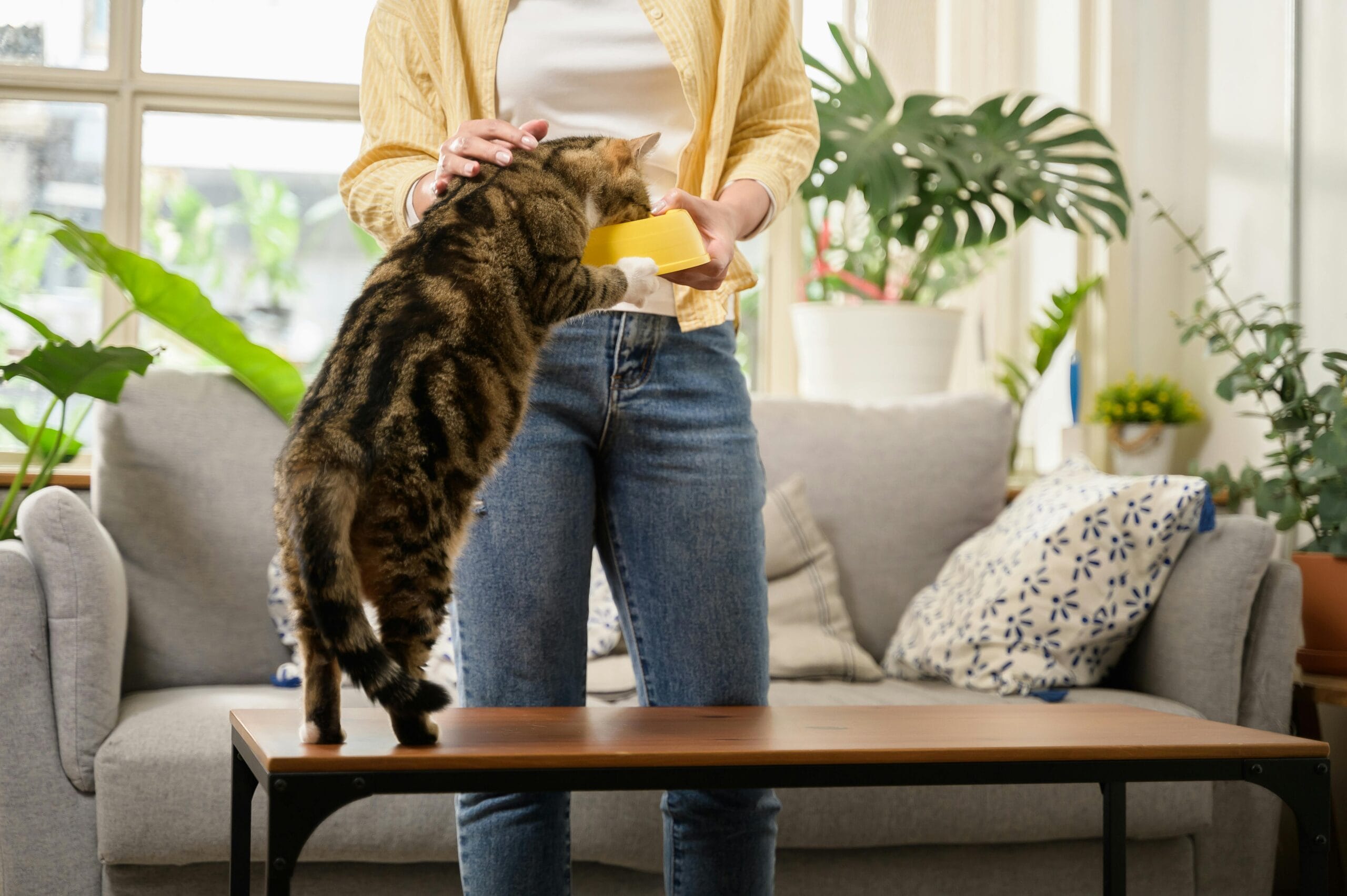Is Smalls Cat Food Good ?

Is Smalls cat food good? Uncover the truth with our in-depth Smalls cat food review & ingredients analysis. Discover if it’s worth the hype!
Is Smalls Cat Food Good? A Comprehensive Review
Choosing the right cat food can feel overwhelming. With so many brands on the market, how do you know what’s best for your feline friend? This in-depth review tackles the question: Is Smalls cat food good? We’ll delve into everything from ingredient quality and nutritional value to customer experiences and pricing, providing you with the information you need to make an informed decision.
Smalls Cat Food Review: A Fresh Approach to Feline Nutrition
Smalls is a relatively new player in the premium cat food market, differentiating itself with its focus on human-grade ingredients and customized feeding plans. Unlike many mass-produced brands, Smalls emphasizes fresh, whole ingredients and avoids artificial fillers, preservatives, and by-products. This approach attracts many cat owners seeking a healthier and more natural alternative for their pets. But does the reality live up to the marketing hype? Let’s examine the key aspects to determine if Smalls cat food truly lives up to its promises.
Analyzing Smalls Cat Food Ingredients: What’s Inside the Bowl?
One of the most crucial aspects of any pet food review is scrutinizing the Smalls cat food ingredients. Smalls prides itself on transparency, readily disclosing its complete ingredient lists online. Generally, you’ll find a mix of human-grade meats, such as chicken, turkey, or salmon, along with fruits, vegetables, and essential nutrients. The exact composition varies depending on your cat’s chosen recipe and any dietary requirements. The absence of artificial colors, flavors, and preservatives is a significant plus for many concerned cat owners. However, it’s essential to remember that even “human-grade” doesn’t automatically translate to perfect health; individual cats can have varying sensitivities.
A potential drawback for some is the emphasis on fresh ingredients. This contributes to the higher cost but also means a shorter shelf life compared to dry kibble. You’ll need to store Smalls appropriately and manage your supply effectively. For a complete understanding of the ingredient profile relevant to your cat’s specific needs, checking Smalls’ website is crucial. They offer detailed nutritional information for each recipe. Furthermore, consulting with your veterinarian to ensure the food aligns with your cat’s individual health requirements and any potential allergies is always recommended.
Is Smalls Cat Food Good for My Cat’s Health? Nutritional Breakdown
The nutritional adequacy of Smalls cat food depends significantly on your chosen recipe. Smalls offers several options designed to cater to cats of different ages, sizes, and activity levels. However, it’s vital to check that the chosen food meets the Association of American Feed Control Officials (AAFCO) nutritional standards for feline growth or maintenance. The AAFCO standards provide a benchmark for balanced pet food, ensuring your cat receives the essential nutrients required for optimal health. Look for statements on the packaging confirming that the food meets these requirements.
Many cat owners report positive changes in their cats’ coat health, energy levels, and overall well-being after switching to Smalls. However, individual results can vary, and a transition to any new food should be gradual to prevent digestive upset. Anecdotal evidence, while valuable, isn’t a substitute for professional veterinary advice. Consulting your vet before making significant dietary changes is always the best course of action. For additional information about feline nutrition, you can consult resources like the American Veterinary Medical Association website, which offers comprehensive guides on cat health and nutrition.
Smalls Cat Food: Customer Experiences and Reviews
Online reviews offer valuable insights into real-world experiences with Smalls cat food. While many users praise the visible improvements in their cats’ health, coat condition, and energy levels, some report negative experiences. Common concerns include the cost, the shorter shelf life of fresh food, and potential issues with delivery. The subscription service model, while convenient for many, can be a point of frustration if changes to your order or delivery schedule are needed.
It’s crucial to read a wide range of reviews from various sources, not just relying on a single website or forum. Consider the overall trend and look for patterns in the feedback. Positive reviews often highlight the superior quality of ingredients, the convenience of the subscription service, and the noticeable improvement in their cats’ health. Negative reviews, however, often center around the price point, the subscription management process, and occasional delivery delays. Weighing both the positive and negative feedback provides a more balanced perspective before making a purchase decision.
Cost and Value: Is Smalls Cat Food Worth the Price?
Smalls cat food is undeniably a premium product, and its cost reflects that. Compared to conventional dry kibble or wet food, Smalls is significantly more expensive. However, many owners feel the higher price is justified by the higher quality of ingredients and the apparent health benefits seen in their cats. The value proposition is ultimately subjective and depends on individual priorities and financial constraints.
The subscription service model offers convenience but might limit flexibility. Analyzing the cost per serving compared to other premium brands can help you determine if it fits your budget. Remember that the convenience of regular deliveries and customized meal plans can offset the higher cost for some pet owners. Ultimately, you need to weigh the cost against the perceived benefits for your cat and your family’s financial situation. Consider budgeting carefully before switching to a premium brand like Smalls.
Smalls Cat Food Ingredients Compared to Other Premium Brands
Several premium cat food brands compete with Smalls, each with its own strengths and weaknesses. A direct comparison of Smalls cat food ingredients to those of competitors like Nom Nom and Ollie often reveals similarities in focusing on fresh, whole ingredients and avoiding artificial additives. However, differences in specific ingredient blends, sourcing practices, and preparation methods exist. Some brands might specialize in certain types of protein or cater to specific dietary needs. Comparing nutrition labels and ingredient lists is essential to find the best fit for your cat’s individual needs.
Another useful resource to guide your comparisons is the Food and Drug Administration (FDA) website. The FDA provides valuable information on pet food labeling and regulations, which can help you navigate the complexities of ingredient lists and nutrition claims. Using this resource can make understanding the nutritional content of various brands more straightforward.
Conclusion: Making the Right Choice for Your Cat
The question, “Is Smalls cat food good?” doesn’t have a simple yes or no answer. Whether Smalls is the right choice for your cat depends on your individual priorities and your cat’s specific needs and health considerations. The higher quality ingredients and customized feeding plans are attractive features, yet the cost and subscription-based model might not be suitable for everyone. Careful consideration of the Smalls cat food ingredients, the cost, the customer reviews, and your cat’s specific dietary requirements are all vital factors in making your decision. Thorough research and consultation with your veterinarian will guide you toward the optimal choice for your beloved feline companion.
Share Your Smalls Cat Food Experience!
Have you tried Smalls cat food? We’d love to hear about your experience! Share your thoughts and feedback on Smalls cat food, including your cat’s reaction to the food and your overall opinion on its quality and value. Your comments will help other cat owners make informed decisions about their pet’s nutrition. Let’s build a helpful community by sharing your Smalls cat food review and insights. Your input matters! What has been your experience with the Smalls cat food ingredients and overall satisfaction?

Smalls Cat Food: 10 Frequently Asked Questions
Here are 10 frequently asked questions about Smalls cat food, with detailed answers:
1. Is Smalls cat food good for my cat?
Whether Smalls cat food is “good” depends on your cat’s individual needs and preferences. A Smalls cat food review often highlights its fresh, human-grade ingredients and personalized recipe options. However, cats with specific dietary restrictions (allergies, kidney disease, etc.) may require a different type of food. Always consult your veterinarian before switching your cat’s diet.
2. What are the main ingredients in Smalls cat food?
Smalls cat food ingredients vary depending on the personalized recipe, but generally consist of fresh, whole meats (like chicken, turkey, or salmon), vegetables, and fruits. They avoid fillers, artificial colors, flavors, and preservatives. Checking the specific ingredient list for your cat’s recipe is crucial.
3. Is Smalls cat food worth the cost?
Smalls is a premium cat food, and it’s more expensive than many supermarket brands. Whether it’s “worth it” is subjective. Many owners value the high-quality Smalls cat food ingredients, personalized recipes, and convenience of delivery. However, the cost might be a barrier for some.
4. How does Smalls cat food compare to other premium brands?
Smalls often compares favorably to other premium brands in terms of ingredient quality and focus on personalized nutrition. However, direct comparisons depend on the specific brands and recipes being compared. Consider looking at individual Smalls cat food reviews and reviews of competitors to make an informed decision.
5. Does Smalls cat food help with allergies?
While Smalls uses high-quality ingredients, it doesn’t explicitly claim to cure allergies. However, the limited ingredient profiles and avoidance of common allergens might benefit cats with sensitivities. If your cat has allergies, consult your vet before switching to Smalls or any new food.
6. How is Smalls cat food delivered?
Smalls is delivered directly to your door on a subscription basis. This allows for consistent food delivery and ensures you’re never caught short. You can customize the delivery frequency to suit your needs.
7. Can I change my Smalls cat food recipe?
Yes, you can generally adjust your cat’s recipe with Smalls, though there may be some limitations depending on your cat’s age and specific health needs. Contact Smalls customer service to explore recipe changes.
8. What if my cat doesn’t like Smalls cat food?
Smalls offers a satisfaction guarantee. If your cat doesn’t seem to enjoy the food, contact customer service for options, such as recipe changes or a refund. A gradual transition to Smalls is often recommended.
9. Does Smalls cat food have different formulations for kittens and adult cats?
Yes, Smalls offers recipes tailored to different life stages, including formulations for kittens and adult cats. These formulations account for differing nutritional needs.
10. Where can I find more information and reviews on Smalls cat food?
You can find more information on the Smalls website, and you can also explore various online platforms and pet forums for independent Smalls cat food reviews to get a broader perspective from other cat owners. Remember to critically evaluate the reviews you find.

Is Smalls Cat Food Good? Practical Tips and Health Considerations
Smalls cat food has gained popularity, but is it the right choice for your feline friend? This guide explores practical tips and health considerations to help you decide.
Pros and Cons of Smalls Cat Food
Pros:
- Fresh Ingredients: Smalls emphasizes fresh, human-grade ingredients, often appealing to owners seeking high-quality nutrition.
- Portion Control: Pre-portioned meals can help manage your cat’s weight and prevent overfeeding.
- Variety of Recipes: Smalls offers a range of recipes to cater to different dietary needs and preferences.
- Convenient Delivery: The subscription service eliminates trips to the pet store.
Cons:
- Cost: Smalls is generally more expensive than traditional dry or wet cat food.
- Subscription Model: The subscription nature may not suit everyone’s flexibility needs.
- Potential for Food Allergies: While using fresh ingredients is positive, it’s important to monitor for any allergic reactions.
- Limited Availability: Smalls may not be available in all regions.
Health Considerations
Before switching to Smalls, consider your cat’s:
- Age: Kittens, adult cats, and senior cats have different nutritional requirements.
- Health Conditions: Certain medical conditions may require specific dietary adjustments, consult your vet.
- Allergies and Sensitivities: Introduce Smalls gradually to observe any adverse reactions.
- Weight: Monitor your cat’s weight closely and adjust food portions as needed.
Practical Tips
- Gradual Transition: Mix Smalls with your cat’s current food to avoid digestive upset.
- Read Labels Carefully: Pay attention to the ingredients and nutritional information.
- Consult Your Veterinarian: Discuss Smalls with your vet, especially if your cat has health issues.
- Storage: Follow the manufacturer’s instructions for proper storage to maintain freshness.
- Observe Your Cat: Monitor your cat’s appetite, stool consistency, and overall health after switching to Smalls.
Conclusion
Smalls cat food can be a good option for some cats, but it’s crucial to weigh the pros and cons and consider your cat’s individual needs. Careful monitoring and consultation with your veterinarian will ensure your cat receives optimal nutrition.
Disclaimer: This information is for educational purposes only and does not constitute veterinary advice. Always consult with a veterinarian before making any changes to your cat’s diet.